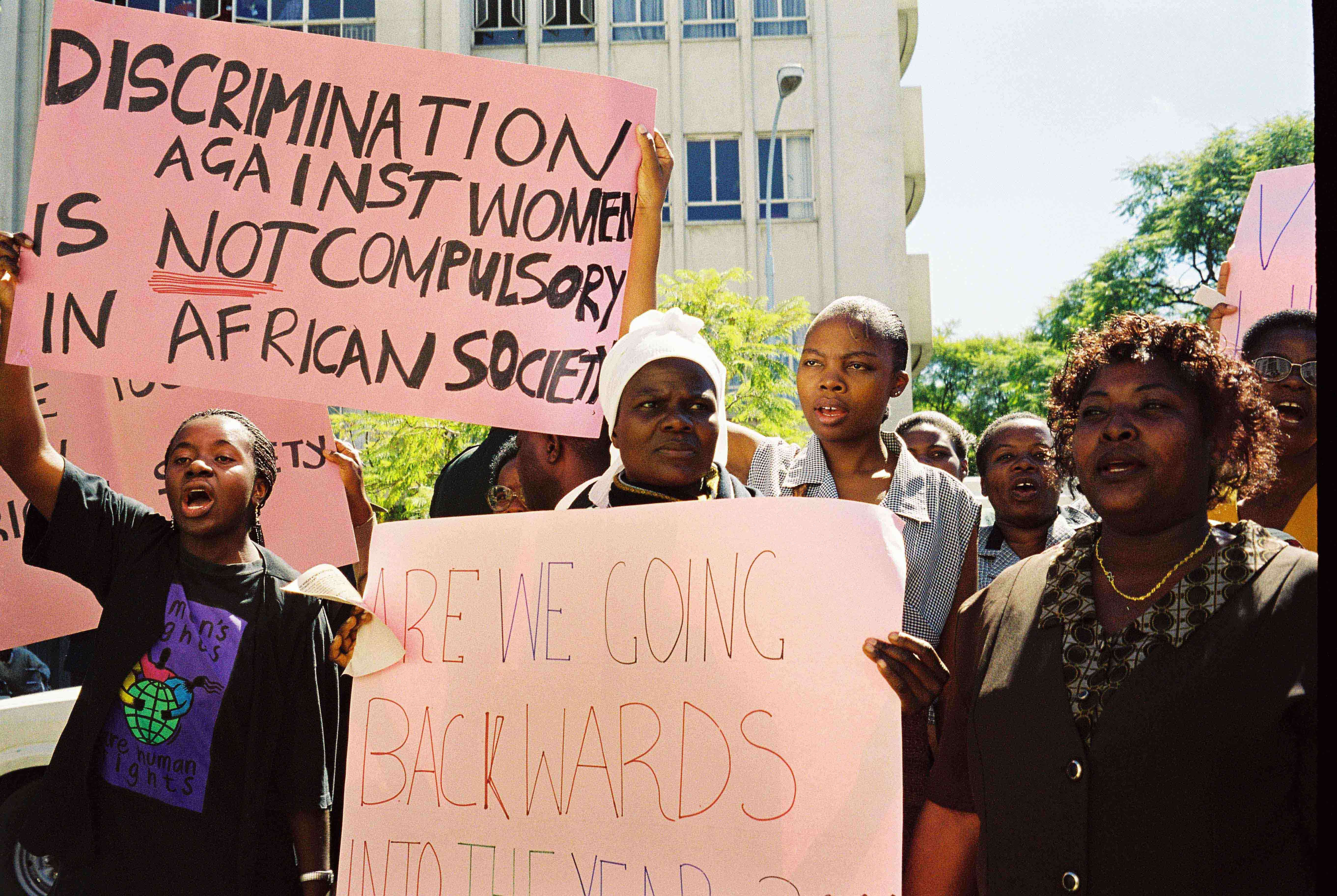
Zimbabwe. One looks anywhere for hope, for a change, for something new. FePEP, the Feminist Political Education Project, has been meeting in Pretoria. Here’s part of their press release prior to the meeting: “Today, Zimbabwean feminists caucus with women activists from the SADC region to break through the Zimbabwean political impasse and begin the implementation of the Global Political Agreement (GPA). In their meeting with SADC facilitator Thabo Mbeki, at 4pm, they will hand over their resolutions, with actions to move the current Zimbabwean question forward. During the day long meeting, prominent activists from across Africa including Liberia, Kenya, Swaziland and South Africa will give input on strategies of negotiated settlement and transitional arrangement.” Is there hope in a meeting with Thabo Mbeki?
Is there hope for real and positive change when so much stays the same, or gets worse. IRIN reports that a sense of dread pervades the country; the BBC reports that cholera is so intense that Zimbabweans will not shake hands any more; Open Democracy reports on a new theater of war in Zimbabwe, one consisting of `enforced disappearances’, which seems a curiously genteel phrase:; and the Mail & Guardian reports first that Tsvangirai has yet again said he will leave the talks on forming a government of national unity, and then that Mugabe says that he will “never, never, never surrender”, that Zimbabwe is his. In other words, absolutely nothing new. But wait, it gets better, which is to say, worse. The Mail & Guardian also reports that the bullets and guns that allow the regime to chant, never surrender never never surrender, those come from the Democratic Republic of Congo. They do not come through the DRC, they come from the DRC. And so we have moved from blood diamonds to blood guns.
Could things get worse? They could. In Indonesia, according to today’s New York Times, part of the country is vanishing in a mud bath, a spewing seeping horror movie montage of a mud volcano, that was created by Lapindo Brantas drilling for natural gas and piercing a pressurized aquifer. Oops! And now ordinary people are left destitute, and without much aid from government or from international agencies, and here’s the best part, because it’s a man-made disaster. They say the mud could seep and bubble, boil and trouble, for decades.
In China recycling is an art form. Chinese elders in particular bring this great resource, this art, with them to the United States. New America Media reports that, when they arrive with this art form, they are ridiculed, in good times, and attacked and robbed, in not so good times … like now. This practice of collecting cans strikes me as connected to domestic labor. These elders clean the earth of the detritus of others, and how are they repaid? They are described as being caught between a rock and a hard place. It would be better to see them as seized and placed beneath a heavy rock and a heavier boulder.
Reporting on the Indonesian `disappearances,’ the Times notes that “the debate over responsibility has severely limited the payments.” Who takes responsibility for the dead and dying in Zimbabwe, for the disappeared in Indonesia, for the diminished in the United States? Who takes responsibility for ending debates over responsibility and instead living responsibility? FePEP provides one answer: women talk with and take care of each other. The State built by men must just follow.
(Photo Credit: Mercedes Sayagues/IPS)